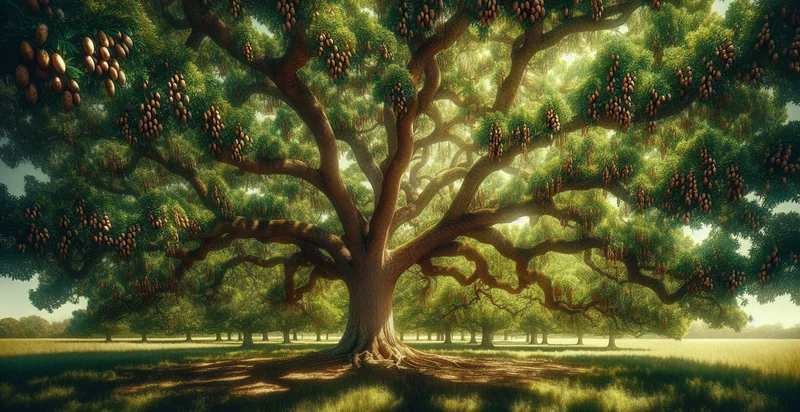Identify pecan tree species
using AI
Below is a free classifier to identify pecan tree species. Just upload your image, and our AI will predict what species of pecan tree it is - in just seconds.

Contact us for API access
Or, use Nyckel to build highly-accurate custom classifiers in just minutes. No PhD required.
Get started
import nyckel
credentials = nyckel.Credentials("YOUR_CLIENT_ID", "YOUR_CLIENT_SECRET")
nyckel.invoke("pecan-tree-species", "your_image_url", credentials)
fetch('https://www.nyckel.com/v1/functions/pecan-tree-species/invoke', {
method: 'POST',
headers: {
'Authorization': 'Bearer ' + 'YOUR_BEARER_TOKEN',
'Content-Type': 'application/json',
},
body: JSON.stringify(
{"data": "your_image_url"}
)
})
.then(response => response.json())
.then(data => console.log(data));
curl -X POST \
-H "Content-Type: application/json" \
-H "Authorization: Bearer YOUR_BEARER_TOKEN" \
-d '{"data": "your_image_url"}' \
https://www.nyckel.com/v1/functions/pecan-tree-species/invoke
How this classifier works
To start, upload your image. Our AI tool will then predict what species of pecan tree it is.
This pretrained image model uses a Nyckel-created dataset and has 25 labels, including Barton, Burkhart, Caddo, Cheyenne, Choctaw, Delaware, Desirable, Forkert, Hall and Haven.
We'll also show a confidence score (the higher the number, the more confident the AI model is around what species of pecan tree it is).
Whether you're just curious or building pecan tree species detection into your application, we hope our classifier proves helpful.
Related Classifiers
Need to identify pecan tree species at scale?
Get API or Zapier access to this classifier for free. It's perfect for:
- Crop Management: Farmers can utilize the pecan tree species identifier to accurately assess the tree species within their orchards. This identification aids in targeted pest management, optimal fertilization, and efficient watering strategies tailored to each species’ requirements.
- Research and Development: Agricultural researchers can implement this identifier in studies focusing on the genetic diversity of pecan tree species. This data can enhance breeding programs aimed at developing disease-resistant varieties and improving overall yield.
- Agroforestry Consulting: Consulting firms specializing in agroforestry can leverage the pecan tree species identifier to provide accurate recommendations to clients. This would help clients optimize their land use and improve the sustainability and productivity of their pecan orchards.
- Environmental Monitoring: Environmental agencies can use the pecan tree species identifier to monitor ecosystems where native pecan trees grow. This helps in assessing the health of these ecosystems and enables the development of conservation strategies for preserving biodiversity.
- Landscaping and Urban Planning: Landscapers and urban planners can employ the pecan tree species identifier to select the right pecan species for parks and public spaces. By understanding the growth and environmental needs of different species, they can enhance urban green spaces while maintaining ecological balance.
- Educational Programs: Educational institutions can integrate the pecan tree species identifier into agricultural studies curriculum. This engagement provides students with hands-on experience in species identification and the importance of biodiversity in agriculture.
- Supply Chain Optimization: Nurseries and agricultural suppliers can use the identifier to streamline their inventory management process. By accurately categorizing pecan tree species, suppliers can better meet customer demands and enhance the delivery of specific, high-demand varieties.


